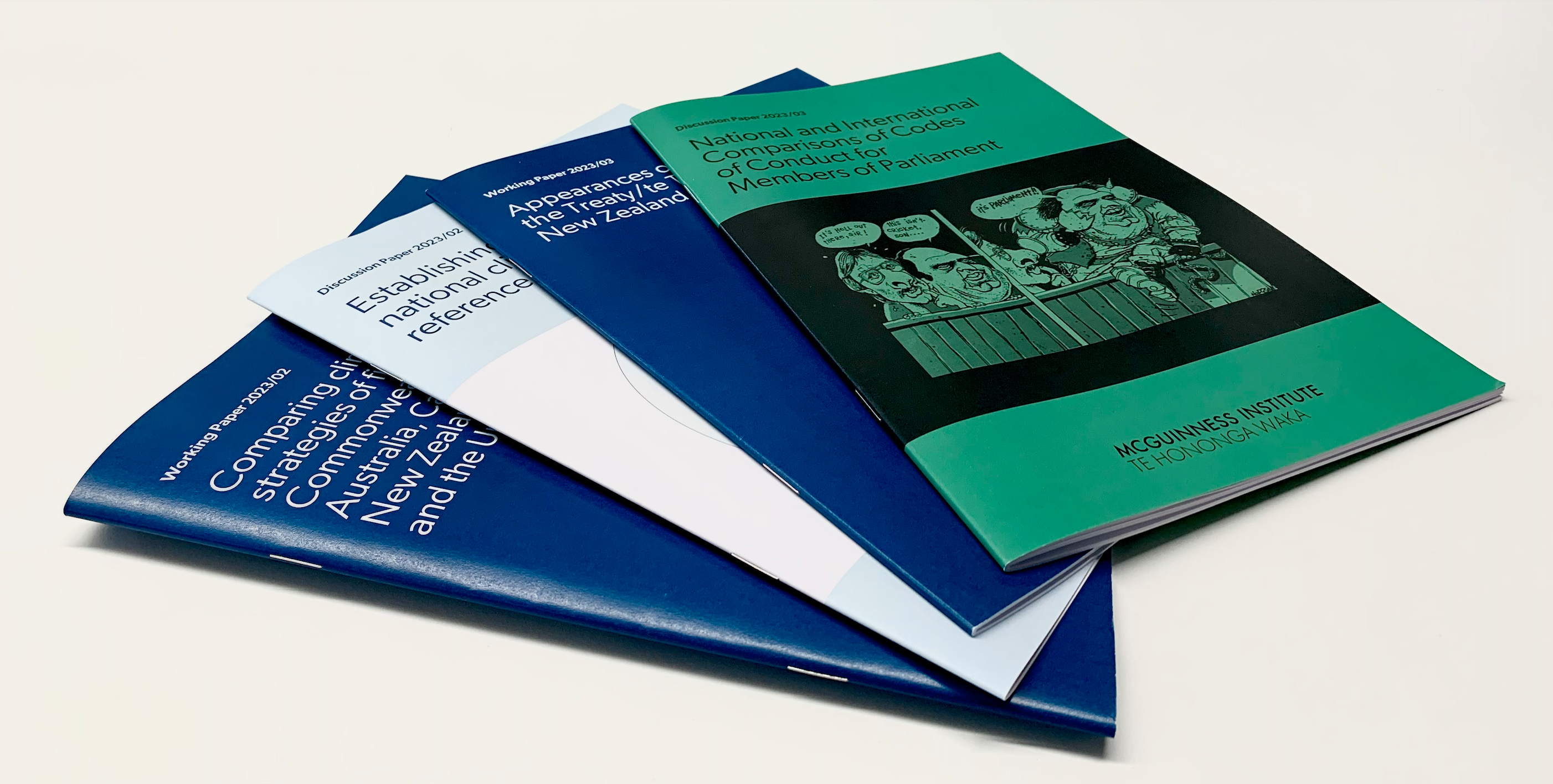Since 2011, the Institute has sent the Prime Minister a package of books we believe they would benefit from reading over the summer break. As we take a non-partisan approach to our work, we also send copies of the books to the leaders of the other major political parties. The books reflect the themes or ideas we identify each year that shape our work.
The theme for this year is ‘shocks and crises’. As we curated this list, the past year’s national and international events occupied our thoughts: mistrust in governments internationally (especially in the UK and the US), the recent tragic Israel–Gaza conflict, and, of course, the continuing impacts of climate change. Although we do not know what 2024 will hold, we can be certain that New Zealand, and the world, must respond quickly and effectively to crises when they occur.
History reminds us of our place in the world, both as descendants and future ancestors, with all the responsibilities this entails. We observe how significant events, and more importantly our responses to these events, change the trajectory of history. For this reason, we have included books on politics, civics, history, nature, science and intelligence, alongside risk and crisis management.
The passage of time also shows us that shock events are inevitable. But if we are well prepared, we can mitigate the impact on people and the planet. As part of this preparation, we need trustworthy institutions and systems, so society is supported in times of crisis. This connects with the Institute’s focus on civics and education, and our belief that engaged and empowered citizens can change the world for the better. To this end, we are pleased to include the fifth edition of our signature book, Nation Dates: Timelines of significant events that have shaped the history of Aotearoa New Zealand. Our book is updated every three years and is designed with our political leaders in mind, so that we: ‘Ka mua, ka muri’ – walk backwards into the future.
Reading is a wonderful way to slow down and absorb one topic or perspective deeply. It is a refreshing balm for the 24/7 online news cycle and constant phone notifications that are part of modern life. The three-year election cycle in New Zealand encourages us to focus on issues that can be resolved in a short timeframe; however, we hope these books will inspire the Prime Minister (and all of us) to prepare for the longer-term, more complex issues we face.
Ngā mihi o te wā
Wendy
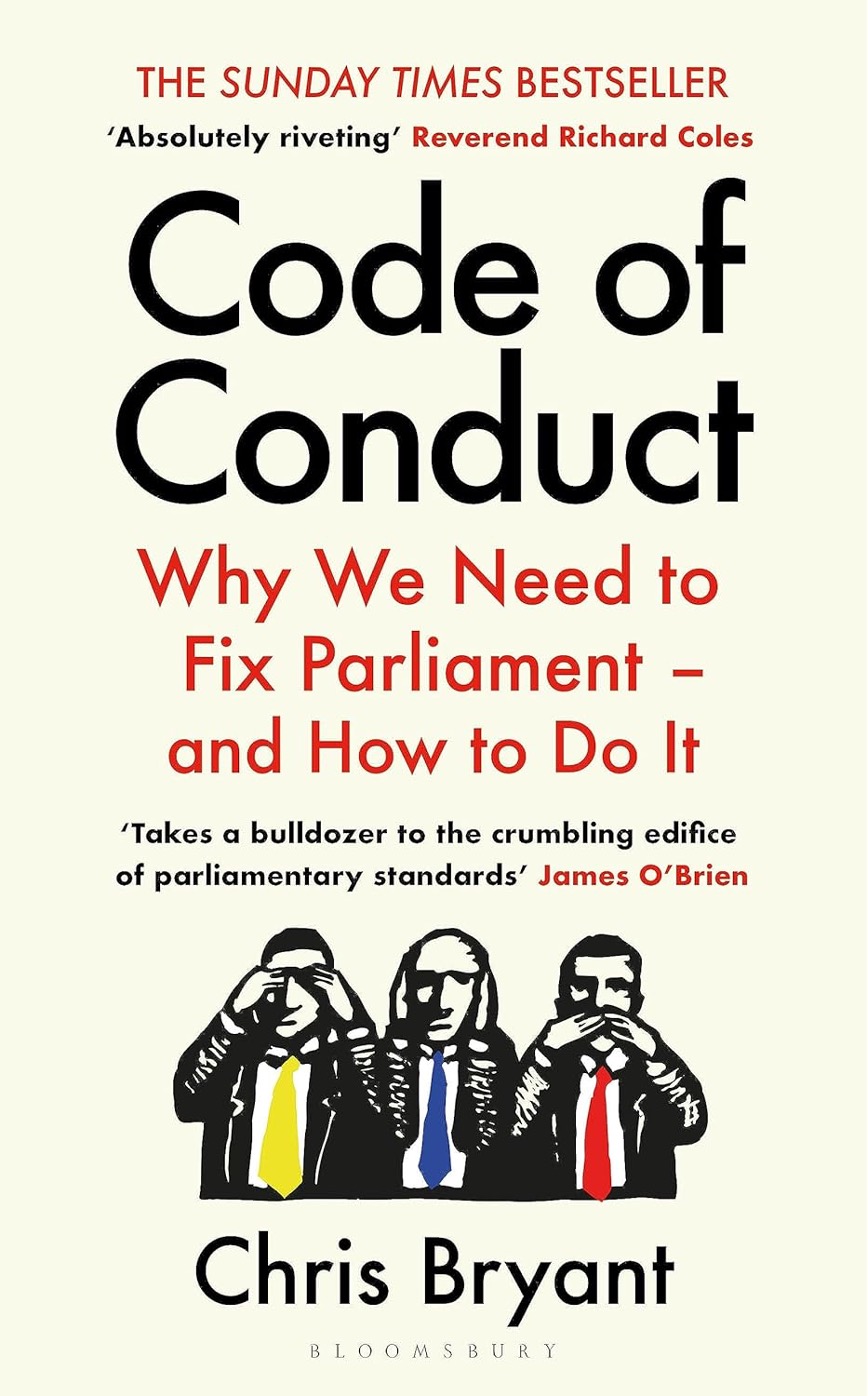
Code of Conduct: Why We Need to Fix Parliament – and How to Do It
Author: Chris Bryant
Code of Conduct is a vital part of the fightback against post-truth populism and the damage it has done to our democracy in recent years. Well written, personal, insightful but also brutally factual, it should serve as a wake-up call to all of us – politicians and public alike – that we need major reform of our politics and our political institutions.
– ALASTAIR CAMPBELL (former British Prime Minister Tony Blair’s spokesman, press secretary and director of communications and strategy)
Chris Bryant has been Chair of the Committees on Standards and Privileges in the UK since 2020 and MP for the Rhondda since 2001.
The past few years have seen society increasingly divided, with eroded trust in parliamentary systems in the UK and internationally. This has led to increased discussion on how to improve these systems. In 2023, three UK writers published interesting books exploring problems with and solutions for the British Westminster Parliamentary system. These include Code of Conduct by Chris Bryant (Guardian review here), How Westminster Works… and Why It Doesn’t by Ian Dunt (Guardian review here) and Politics on the Edge by Rory Stewart (Guardian review here).
All three books provide useful context and perspectives on the current system, but we selected Chris Bryant’s. In it, he shares observations on misconduct, bullying, harassment, corruption and conflicts of interest in the British Parliament, highlighting serious issues alongside proposals for how to resolve them. We chose this book given the work we think is needed to improve the code of conducts of MPs in New Zealand.
This idea connects with the Institute’s Discussion Paper 2023/03 – National and International Comparisons of Codes of Conduct for Members of Parliament (see image below). Its author, Bill Gray, concludes: ‘The implementation of a more extensive code of conduct for parliamentarians would be a measure to preserve and cultivate the dignity, integrity and trustworthiness of Parliament, so that it can be an effective legislature for current and future generations’.
Civics education and ensuring the public has faith in a strong parliamentary institution also connect with the Institute’s Bursting Bubbles session from James Picker (Clerk Assistant, Office of the Clerk of the House of Representatives): How to be Non-Partisan in a Partisan World.
As a new Prime Minister enters our Parliament, we hope Bryant’s book is a powerful reminder of the importance of our MPs maintaining high standards of behaviour and ethical conduct. It is critical society has confidence in our representatives and this trust can easily be lost with misbehaviour and deceit. In times of chaos and crisis, a strong Parliament will be able to support and lead the country.
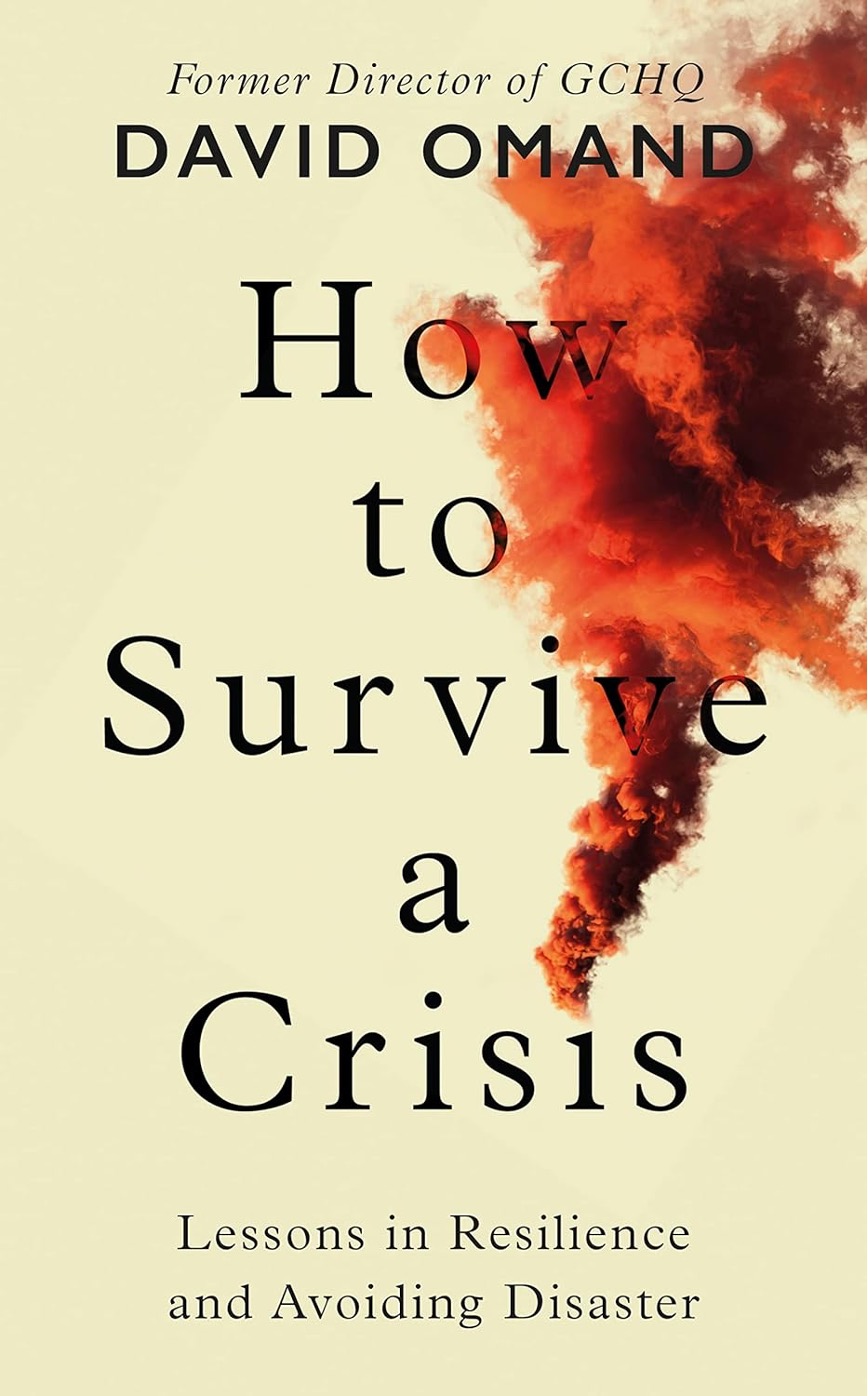
How to Survive a Crisis
Author: David Omand
David Omand was at the heart of British government for decades with a ringside seat for many of the crises of that period. This book distils that rare and valuable experience. There are useful insights on virtually every page – along with handy checklists for those tasked with decision-making during a crisis and even a guide to protect one’s own household. As a nation we should be taking our resilience and preparedness much more seriously. This important book is an indispensable guide as to how we could do it.
– LORD TOBY HARRIS (member of the House of Lords)
Professor Sir David Omand has had an extensive career in defence, security and intelligence, including as Director of GCHQ and as the UK Security and Intelligence Coordinator. GCHQ is the Government Communications Headquarters, one of the three UK Intelligence and Security Agencies, along with MI5 and the Secret Intelligence Service (MI6).
In this book, Omand reflects on different kinds of crisis and how we can prepare for and respond to them. He shows how we need to be ready for unexpected ‘sudden major shocks’ as well as creeping ‘slow burn’ crises (p. 2). Each chapter concludes with lessons in crisis survival for organisations and individuals. Risk is unfortunately a part of life, however, by accepting and normalising it, we can begin to devise scripts to turn to in times of crisis.
Omand’s book is useful for an incoming Prime Minister because it shares advice on how to identify a looming crisis and respond so as to maximise survival and minimise loss. Detailed case studies from past events give context on how to best prepare for the future, and Omand also shares observations on crisis planning, including identifying when and why an emergency turns into a crisis.
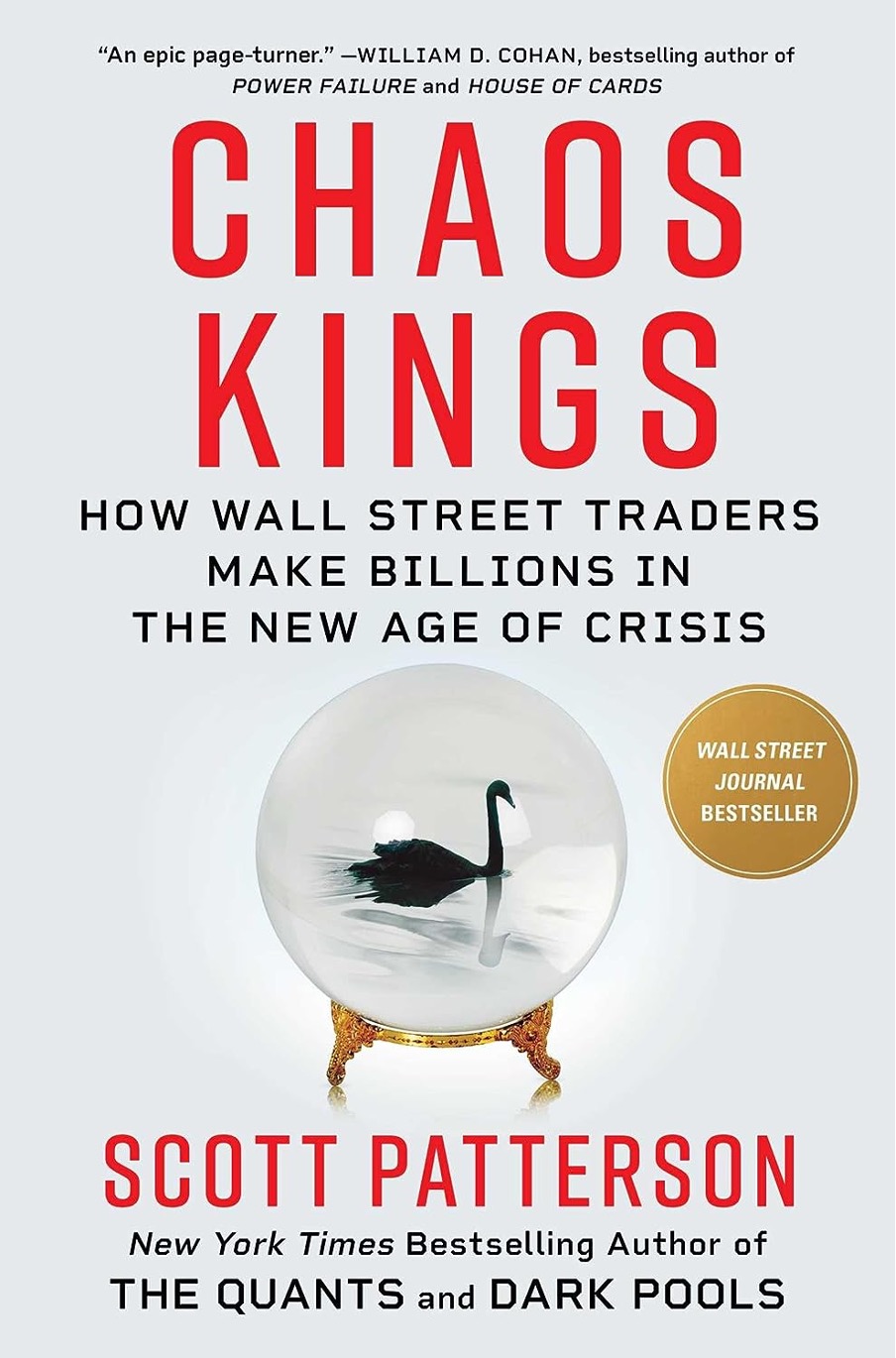
Chaos Kings
Author: Scott Patterson
Financial markets covet stability; they don’t like surprises. In our new age of crisis, Scott Patterson convincingly recounts how a unique type of trader has learned to embrace the disruptions and make a lot of money doing so. Combining risk theory, finance, and portraits of some of the most interesting billionaires of doom, Patterson takes us on a disturbing tour of what could come tumbling down. But he also provides a detailed road map showing average citizens how to steer past catastrophe.
— JULIETTE KAYYEM (former Assistant Secretary of the United States Department of Homeland Security, and author of The Devil Never Sleeps: Learning to Live in an Age of Disasters)
Scott Patterson is an experienced Wall Street Journal reporter and New York Times best-selling author.
In Chaos Kings, Patterson investigates increasing risks in society (such as pandemics, climate change and cyberattacks), whether we can predict these events, and what their impacts will be on financial assets. He examines two different groups’ takes on how finance can predict and respond to unforeseen risks: the first (led by Nassim Nicholas Taleb) believes humans cannot predict disaster, and the second (led by Mark Spitznagel, Taleb’s past collaborator) believes investors can predict and therefore protect themselves from unforeseen events.
This book is a great complement to the risk theory outlined in Taleb’s Black Swan (highly recommended for anyone interested in futures and risk). However, Patterson has a greater focus on the relationships between risk, finance and climate change. A very short YouTube clip with Patterson and Taleb can be found here.
Chaos Kings reads as a great tale, fast paced and essential reading for anyone interested in business and stock markets. However, the last chapter, ‘Doorstep to Doom’, discusses the difference between the precautionary approach (‘largely passive, a recommendation against taking actions that could pose extreme danger to humanity’) versus longtermism (‘far more prescriptive … advocating extreme Hail Mary experimentation in order to secure humanity’s boundless future’) and positions climate change as ‘a speed bump on the road to humanity’s future domination of the galaxy’ (pp. 282–283).
This important book reminds us to prepare for the unexpected, which, of course, is one of the roles of Government.
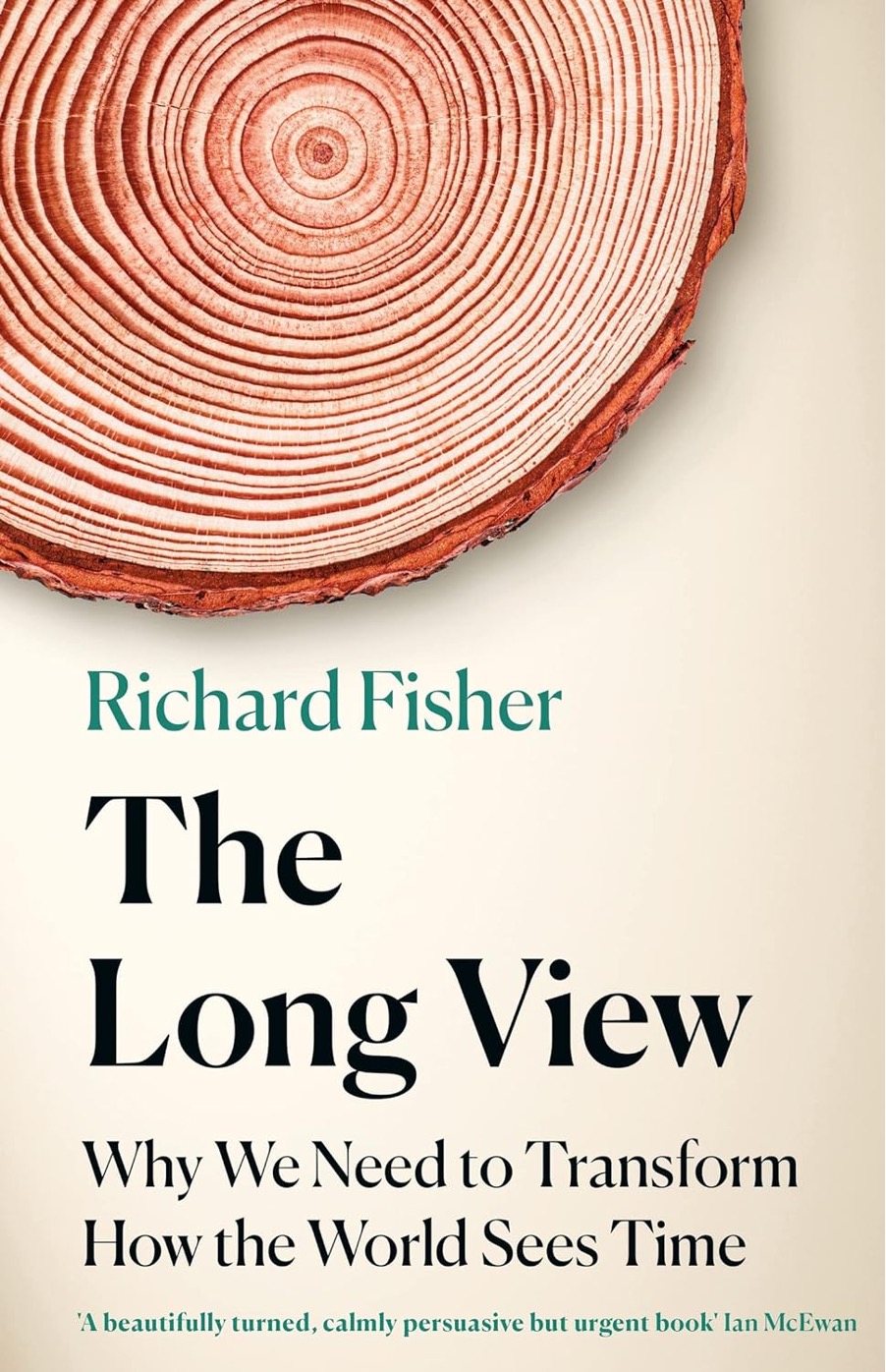
The Long View
Author: Richard Fisher
The Long View is a manifesto calling for a radical reconception of our relationship with time. Richard Fisher documents the social, psychological, and economic reasons we have become stranded on the Island of Now – and charts routes for us to get back to the mainland.
– MARCIA BJORNERUD (author of Timefulness)
Richard Fisher is a senior journalist with BBC Global News in London, who specialises in science, technology and health.
Fisher’s introduction to this book resonated. In describing the moment he realised his newly born daughter could live to see the 22nd century (p. 2), he made me realise that whenever we hold a baby today, we are holding 2100 in our arms. Not only did his experience make me appreciate that 2100 is not very far away, but that given all the projections I have seen over the years, we have a lot of hard decisions to make.
The Long View aligns with the Institute’s emphasis on shifting our thinking from the present to the long-term future. In a modern world full of urgent issues, Fisher outlines why we must take a step back and consider the long view – a new approach that challenges our perspective on time.
This well-written manifesto outlines the risks of short-term thinking and the benefits of long-term thinking in politics, science, business and culture. It links closely with an observation that came from editing the fifth edition of Nation Dates: Our history is a powerful reminder that we are only here in this particular moment because of the actions of our ancestors, and the actions we choose today will define the lives of future generations. We need to work hard and ask difficult questions to ensure we are responsible ancestors. We discuss this in more detail under Nation Dates below.
For a new Prime Minister, The Long View is a powerful reminder to think about the impact of actions and policies beyond each election cycle. We need to consider and debate the impacts of our actions on future generations.
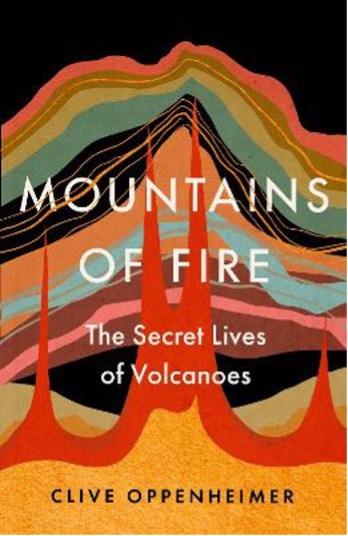
Mountains of Fire
Author: Clive Oppenheimer
Through a global tour of some of the world’s most fascinating volcanoes, Oppenheimer highlights the scientific insights from, and social impacts of, various eruptions. From North Korea to Antarctica to the Caribbean, he brings the reader along with extraordinary access onto the very flanks of volcanoes. Oppenheimer’s deep knowledge of these mountains of fire, combined with his eye for detail and his deep respect for those living alongside volcanoes, yields a thoroughly delightful and accessible exploration of these geological wonders.
― ALEXANDRA WITZE (science journalist and co-author (with Jeff Kanipe) of Island on Fire)
Clive Oppenheimer is Professor of Volcanology at the University of Cambridge, where he has been based for 30 years. He is also a writer and filmmaker.
I have a habit of checking out talks by authors when travelling, and I came across Oppenheimer in a famous bookshop, Topping & Company, in Edinburgh. I was particularly interested in his talk given the eruptions of Whakaari/White Island, Mt Erebus and Taupō. When I talked to Oppenheimer after the event, he shared many of his personal observations about Antarctica and New Zealand.
Mountains of Fire is a surprisingly poetic reminder of the complexity and beauty of nature. Oppenheimer describes volcanoes through a combination of mythology, culture, science and stories. He shows volcanoes and their activity to be intimately connected with our climate and environment, as well as with our politics, economy, culture, religion and beliefs.
For the new Prime Minister, this book is a reminder of the risks of volcanic eruptions and the need to invest in volcanology and be better prepared for eruptions and their impacts on human health. In particular, we must build up our burns unit capacity and our warning systems to minimise exposure to volcanic ash. We teach our children how to prepare for earthquakes, but we also need to teach them how to prepare for eruptions and wildfires (some eruptions may create wildfires).
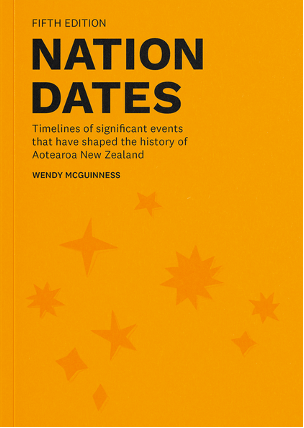
Nation Dates (fifth edition)
Author: Wendy McGuinness
They make ripples today, illuminate paths forward, and reflect trails back, like stars in the heavens have always marked waypoints in a great Pacific voyage, commanding horizons to draw near, urging a great voyaging waka forward, unifying in vision, purpose and intent.
– TREVOR MOEKE (Horouta, Mātaatua, Tākitimu waka Māori foresight and thought leader) (p. 7)
Nation Dates chronicles 254 years of Aotearoa New Zealand’s recent history, with a view to providing useful context for shaping our nation’s future. Its threads link related events and illustrate patterns that have formed over time. More than just a record of the past, Nation Dates aims to provide a context for the future at a time when society faces major questions about the way forward. This fifth edition includes 16 supplementary timelines (17 in total), 857 historical events and almost 2000 pdf references (found on the Nation Dates website).
To be on the right side of history is not easy; the very best intentions can deliver the very worst of outcomes. Taking time to reflect on and understand the challenges faced by past generations should help us better respond to the opportunities that lie ahead.
Nation Dates is a reminder that we all need to continue to work hard, like our ancestors did, to develop durable solutions to challenging problems, so our mokopuna will have the ability and resources to create the type of society they want to live in. Learn more at www.nationdatesnz.org

Foresight Tools
Author: McGuinness Institute
A child born today will be alive in the year 2100. Thinking long term is thinking about the type of life they might live. It requires us to think carefully about the decisions we make today.
Foresight tools can help shed some light on a range of possible futures. It is an exciting and positive tool for helping us navigate the future.
– Adapted from Richard Fisher’s book, The Long View, above (p. 2)
Foresight Tools uses graphics and diagrams to explain some of the Institute’s favourite foresight tools in a readable, accessible way. Each of the 20 tools explained in this booklet aim to help the reader brainstorm ideas about the future and to be better prepared for opportunities and challenges that may arise.
We hope this booklet will spark discussion and debate as people prepare for the future, and that it inspires the Prime Minister to forward engage, interacting early before issues become difficult to manage.
To conclude
Together, we hope all seven of our selected books inspire our politicians to think long term and dream about a better future for our mokopuna. We have also included a selection of two discussion papers and two working papers that might be useful. Enjoy!

